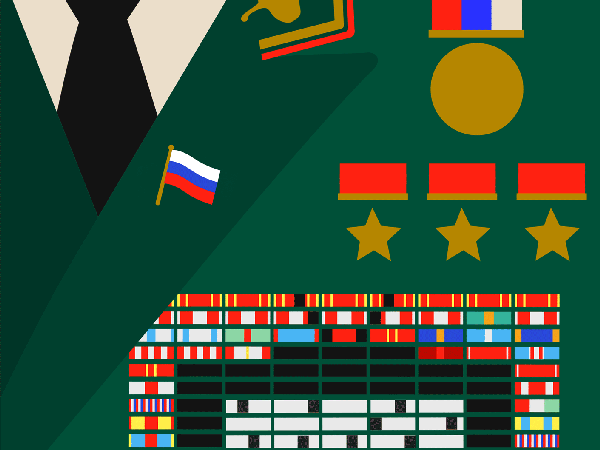| Current and former employees describe Russian state television as an army, one with a few generals and many foot soldiers who never question their orders.  Illustration by Tyler Comrie The writer Masha Gessen was in Moscow during the early days of Russia’s invasion of Ukraine, and was struck by how Russian newscasts downplayed the war. Was this a strategy to divert Russians from paying attention to what was happening? But, in speaking with people employed by Russian state channels, Gessen found out that “at least some of the Kremlin’s media managers hadn’t known that the invasion was coming.” Now the war is on television all the time. Outside of Russia, the media has been documenting the Russian Army’s atrocities, but another army—of anchors, reporters, and editors—orchestrates the message within Russia. Star propagandists receive a list of topics each day to discuss. Stories might include Ukrainian refugees “exposing their true criminal selves” by shoplifting, Russian doctors treating injured children in Ukraine, or a Ukrainian village being “liberated from the neo-Nazis.” Several journalists, disturbed by the censorship, have quit and left the country, but many remain. Gessen asks one source, Does truth exist? The editor responds, “It’s hard to identify true information. It’s like believing in aliens, or in God. Everyone decides for themselves.” —Jessie Li, newsletter editor If you like the New Yorker Daily, please share it with a friend. Was this newsletter forwarded to you? Sign up here. |
No comments:
Post a Comment